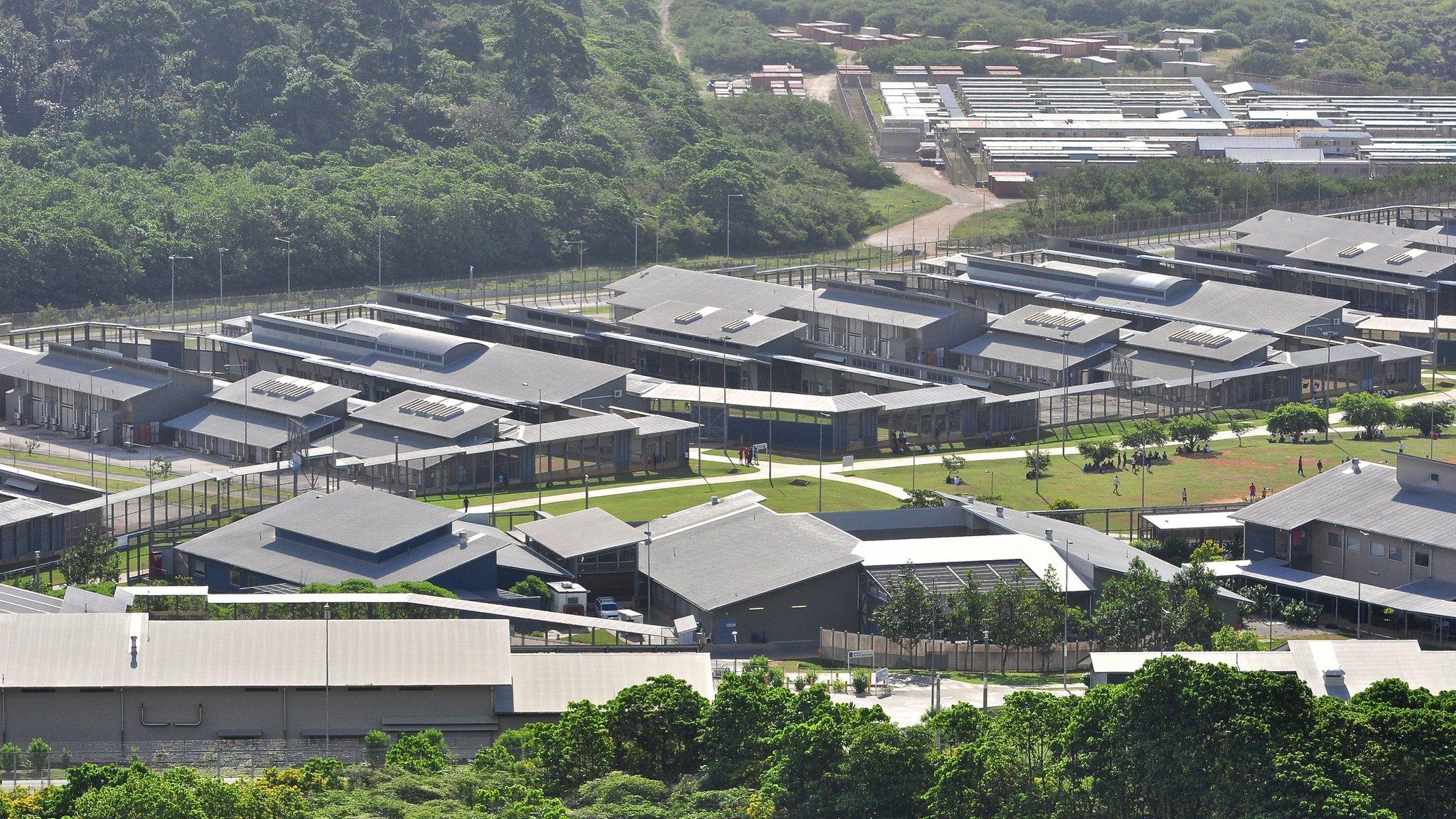Australia asylum: 'Most Manus detainees to be sent home'
- Published
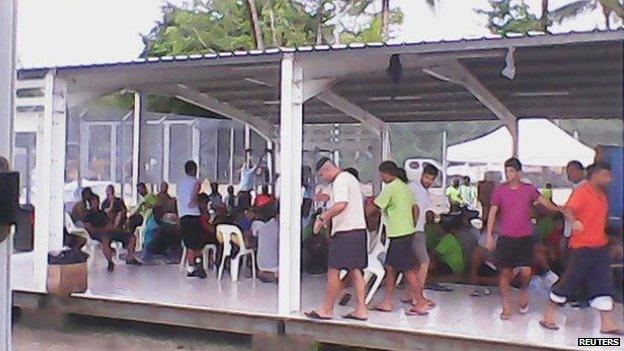
Rights groups have criticised conditions at the Manus Island camp
Most asylum seekers at an Australian-run detention centre in Papua New Guinea (PNG) are not refugees and will be repatriated "within weeks", the prime minister of PNG has said.
Peter O'Neill told the ABC network that many detainees at Manus Island centre were in fact economic migrants.
A campaigner dismissed his statement, saying most of the detainees had yet to have their asylum claims processed.
Detainees at the centre have been protesting against Australian policy.
At the height of the protest this month, some 700 of the centre's approximately 1,000 residents were reportedly on hunger strike. Many of them are also said to have carried out acts of self-harm, such as swallowing razor blades and hazardous chemicals.
The protest fizzled out after guards entered barricaded parts of the centre and moved several detainees, alleged to be protest "ring-leaders", to separate facilities.
The policy of detaining asylum seekers offshore - intended as a deterrent - has been criticised by rights groups.
Reports from Manus Island centre are hard to verify. The media is not allowed access to the site and often-contradictory statements from officials and refugee advocates cannot be confirmed independently.

Australia and asylum
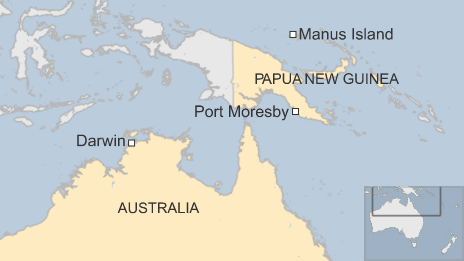
Asylum seekers - mainly from Afghanistan, Sri Lanka, Iraq and Iran - have been travelling to Australia's Christmas Island on rickety boats from Indonesia
The number of boats rose sharply in 2012 and the beginning of 2013, and scores of people died making the journey
Everyone who arrives is detained. They are processed in camps in Christmas Island, Nauru and Papua New Guinea. Those found to be refugees will be resettled in PNG or Cambodia, not Australia
The government is believed to be towing boats back to Indonesia. It has also returned asylum seekers intercepted at sea to Sri Lanka
Rights groups and the UN have voiced serious concerns about the policies

'Undermines confidence in law'
Mr O'Neill told ABC - the Australian Broadcasting Corporation - that many of the people being held at Manus Island were "trying to have economic opportunities that Australia and other countries offer to them".
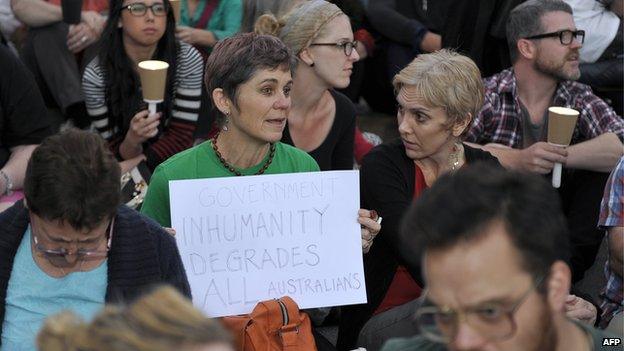
Australians have also protested against their government's policy towards asylum seekers
He said the number determined to be genuine refugees would be "very small".
"Most of the other people who are in the processing centre: we're now talking to their governments and we will start repatriating many of them in a very short time."
Asked how long this would be, he replied: "I would say within weeks."
However, Ian Rintoul, a spokesman for campaign group Refugee Action Coalition, told the BBC this would not happen, as only a fraction of the detainees' asylum applications had been processed.
"[Mr O'Neill] is in no place to know whether they are [economic refugees] or not," he said. "There has been no determination assessment."
Mr Rintoul said the PNG government statement "undermines confidence that there is any respect for refugee law".
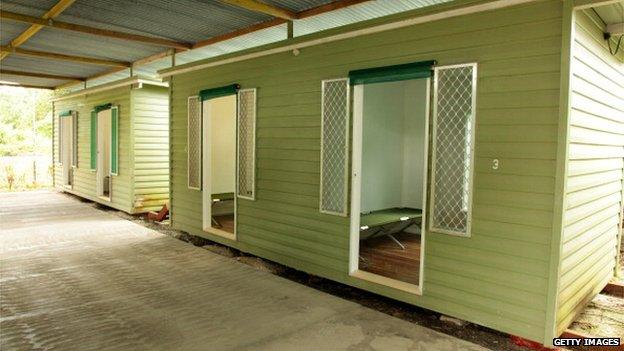
The Manus Island centre is home to just over 1,000 asylum seekers
Australian government statistics, quoted by ABC last November, external, showed that 104 claims for refugee status from the Manus Island centre had been processed.
Of these, 56 had been approved, and 48 were rejected. According to the ABC report, the PNG government said it expected to process refugee applications at a rate of 10 per week.
However, the country has yet to approve a policy for resettling those deemed to be genuine refugees on its territory. In the latest interview with ABC, Mr O'Neill said he expected six Manus Island detainees so far to be resettled in his country.
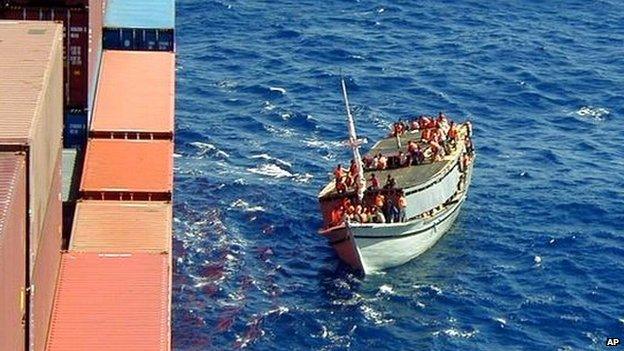
The government says its policies mean asylum seekers are no longer attempting dangerous sea crossings
It is unclear what will happen to the remainder of the detainees who have received refugee status. Many Manus Island inmates say they fear they will be exposed to hostility and attack from Papua New Guinea residents if they are resettled there.
The centre was the scene of deadly riots last February, when local residents entered the facility and clashed with detainees. One asylum seeker was killed and at least 70 were hurt in the violence.
The Australian government says its tough policies are aimed at ending the flow of boats carrying asylum seekers, so that no more people die making the dangerous journey to Australia.
Only one such boat reached Australia during 2014, compared with the 401 which successfully reached shore in 2013, according to local media reports.
- Published31 October 2017
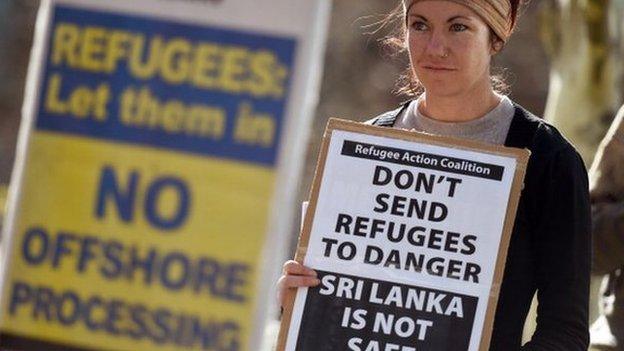
- Published20 January 2015
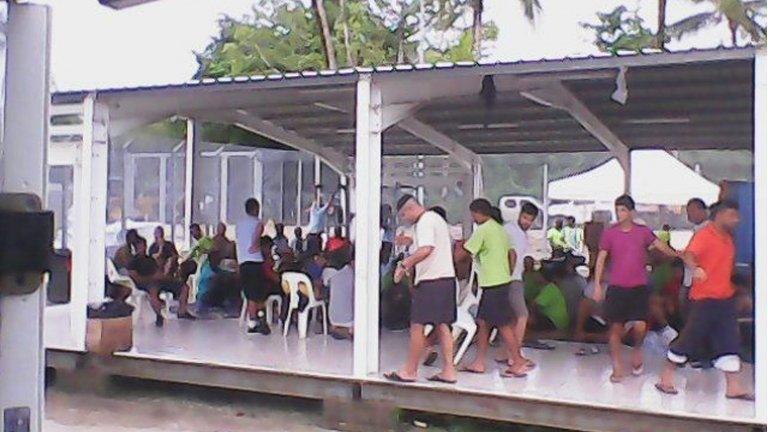
- Published26 August 2014
